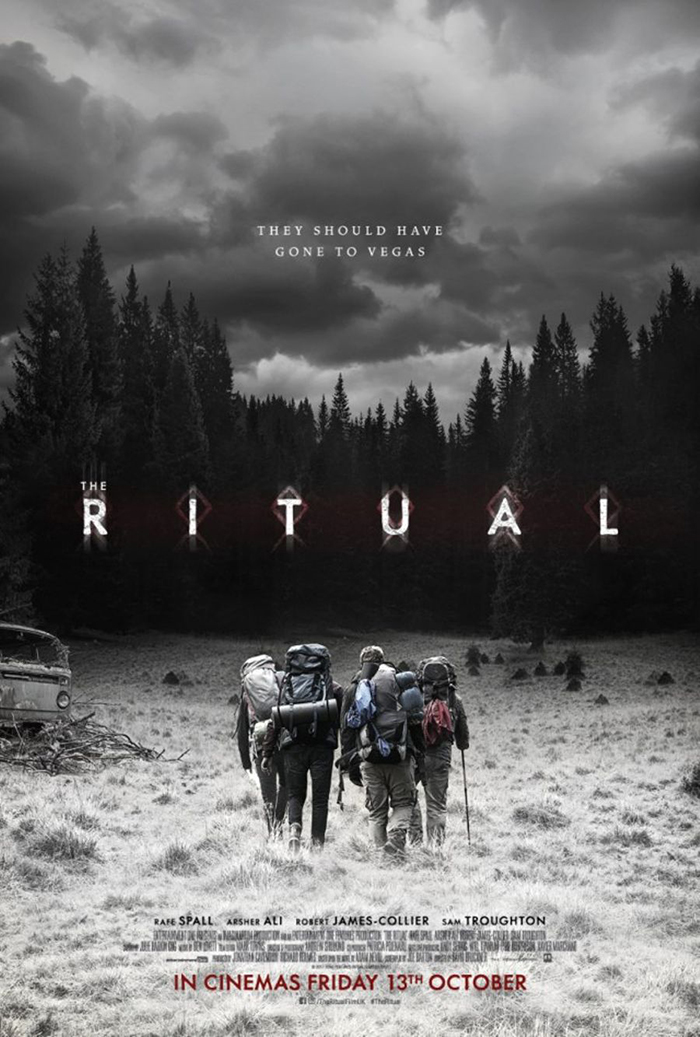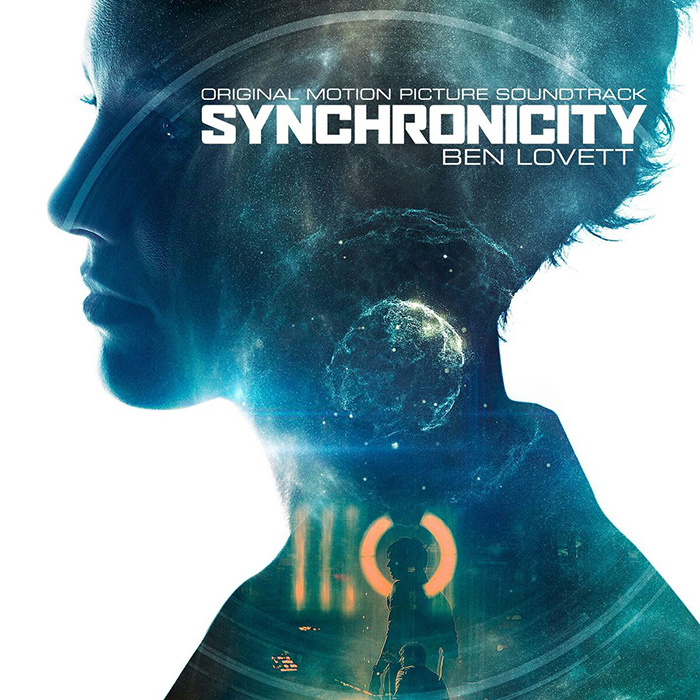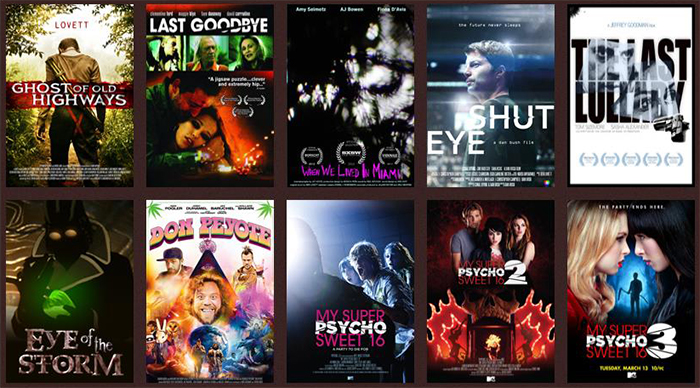Interview - The ritual : Let's talk with Ben Lovett
By Mulder, Los Angeles, 20 february 2018

Q: Please can you make a short presentation about your background before becoming a composer ?
Ben Lovett : I grew up in a small town and never had any musical training when I was young. I taught myself how to play the guitar in high school by listening to punk rock records, then dove into learning about recording techniques, built a little studio and started recording bands in Athens, Georgia when I was in college. I met a lot of creative and inspired young artists there and wound up scoring a film when I was about 19 even though I had no clue what I was doing. The people making the movie didn’t know what they were doing either though so it worked out fine and was a great experience. That was 20 years ago and though my life and career have taken all sorts of twists and turns I’ve continued scoring movies ever since.
Q: What must be for you a great collaboration between a director and composer?
Ben Lovett : You have to trust one another. And make sure you’re telling the same story. The composer’s allegiance is to the director, your job is to service their vision. But in a good collaboration the composer helps shape that vision. In a certain way, the job of directing becomes the responsibility of the composer the moment you come aboard. You have to interpret the director’s intentions for a scene, or a character, or for the film in general, and turn that into emotional content that is palpable for the audience. It’s common for a director to have lost sight of their original vision by the time they’ve gone off to war to shoot it and returned weary and exhausted, and you can help them restore that vision by coming in and providing different perspectives on the narrative.
Q: What is for you the main duty of a good composer?
Ben Lovett : Help communicate the story to the audience. There are many things we experience that cannot be written or photographed. They simply aren’t the appropriate language for communicating certain emotions. A great score works together with those elements to draw you into the story through your own emotional experiences, and engage your imagination to add layers to the story that aren’t being shown or spoken onscreen. You tell the story to the audience from inside them.
Q: What can you tell us about your collaboration with David Bruckner on the movie The ritual ?
Ben Lovett : David was one of the people I originally met in college, so we have known each other a long time and have worked on projects together in the past. However it had been 10 years since the last time we’d done a movie together, so we were both excited about the opportunity to saddle up together again. We’re both self-taught in our respective disciplines and came up together through a similar indie film background, so we’ve developed a short-hand to our communication. We understand what the other is going for, and if we don’t, we know how to ask. Having that history and that foundation served us while making “The Ritual” because the post process was very, very intense due to the schedule. David was running all around London managing all the various aspects of post production, of which score was only one part. So he needed someone he could really trust and knew instinctively how to translate his intentions for the film, because there was never a point at which he could focus only on music. He encouraged me to do my thing and trusted me to infuse the film with a certain mood and personality.
Q: What must be for you a great score for a thriller movie ?
Ben Lovett : In any sort of thriller you’re likely dealing with scenes involving a great amount of tension and suspense, and in horror there is the opportunity to explore the most intense of all human emotions, fear. As a composer I enjoy exploring these more extreme emotions and experimenting with different ways of generating those feelings in the viewer.
Q: Which were your biggest difficulties that you have met to create The ritual score ?
Ben Lovett : I created the score start-to-finish in London, which is where David was during post. I didn’t know anyone in London and arrived to discover I had a very small window of time to write and record everything. I had to recruit musicians and figure out the logistics of creating the music at the same time I was trying to unwrap it creatively and write everything, all while being thousands of miles from anything or anyone familiar. It was very difficult, though I come from a background of low-to-no budget filmmaking so I’m used things being difficult and sort of expect them to be, regardless of scale. The Ritual pushed that to a new level though, I think making this score probably took a few years off the end of my life. My experience was essentially weeks of sleep deprivation compounding into a general state of constant panic and schedule-induced anxieties, which all absolutely informed the music. As much as the score is an interpretation of the character’s experience, it’s also just the sound of me freaking out.
Q: What was your best memory of working on a score?
Ben Lovett : When you buy the popcorn. Until then there’s a chance it could all fall apart or never see the light of day. But when you’re buying the popcorn, you made it through, you survived the experience. You also spend nearly all your time on a film working from an incomplete version of it, and it’s not until you can sit in theater and watch it with an audience that you ever get to experience it as a complete movie. So that’s always fun. After that though, you never want to see it again.
Q: What do you consider the best place to record a score?
Ben Lovett : Wherever your favorite musicians are. It also helps if that’s wherever the director is, because you’re working to help tell their story. I often have to stretch the limitations of my budget so I record wherever I can maximize the value of the means. For me that often tends to be at a recording studio in Asheville, North Caroline called Echo Mountain Studios.
Q: Does the budget of a movie have an impact on your creation?
Ben Lovett : Yes, but time is an even bigger factor. I very rarely find myself in a situation where there seems to be enough of both for what is required, but that’s the job. Generally speaking you can do more in less time when there’s enough money, or, get more for your money when there’s enough time. Many indie film budgets are “all-in” deals where you only make what you don’t spend. The artist in you wants to put it all onscreen, but you also have to eat and keep the lights on, so it’s important to find creative ways to solve the consistent challenge of scoring the picture without sufficient means and develop different methods for overcoming those odds, while also remembering to take care of yourself so there’s still a roof over your head to do the next one.
Q: Which software do you use?
Ben Lovett : I work primarily in Pro Tools. I’ve been on it forever and it’s like a second language to me. Recently I began tinkering around in Ableton Live which is built around a fundamentally different approach to music creation and I’ve enjoyed exploring that platform as way to inspire ideas and stumble into interesting accidents.
Q: Any advice to young film composers, especially one who want to compose for film?
Ben Lovett : You have to enjoy the work, the actual chopping wood and carrying water part of it. Don’t expect any parades, the credit or appreciation you might receive will never be proportionate to the amount of influence your score probably has on the finished film. It’s a business of relationships so make lots of stuff and meet lots of people. It’s not who-you-know, it’s in fact, who-knows-you. Lastly, always remain in service of the story — which is not about you — and remember that the effectiveness of your score relies on your ability to work within the framework of the director’s vision, and to exist with all the other elements onscreen trying to tell that same story. The score is an important cog in the wheel, but so are all the rest.

Q: You have received a World Soundtrack Award nomination for Discovery of the Year for your work on Synchronicity. What do you think about the actual score industry and market ?
Ben Lovett : It was interesting being at the World Soundtrack Awards as a nominee because I felt like the zebra in the horse stable. I’m a bit of an outsider to the score industry. I never had a mentor, or anyone to teach me about the business, I don’t live in Los Angeles or New York, and I don’t know many other composers. I’m not part of the club, I just do my own thing and have been fortunate that opportunities continue to come along that allow me to collaborate with other artists to tell engaging stories.
Q: Will you be interested to work with French directors?
Ben Lovett : Absolutely. France is one of my favorite places in the world and I love everything about French culture and French cinema — Goddard and Jean-Pierre Jeunet are obvious favorites; Diving Bell & The Butterfly is outstanding, Holy Motors knocked my socks off — spectacular. So yes, I’m officially available for any French film projects, assuming of course Yann Tiersen and Desplat are already booked.
Q: Can you talk at all about your recent projects?
Ben Lovett : Sure, I’m scoring a documentary right now about the strange and interesting life of taxidermists and have completed scores for 3 other films that are all in post. One of those is “Night Sky” from Jacob Gentry, the director of “Synchronicity.” “American Folk” is another film I scored that came out a couple weeks before “The Ritual.” Lakeshore Records released the soundtrack for it, the album and film are both streaming and easy to find out there. It’s a totally different sound from “The Ritual” or “Synchronicity,” but another side of what I do.
Ben Lovett (born May 3, 1978) is a current American recording artist, film composer, songwriter and producer from Georgia. Lovett is the founder of record label, Lovers Label. His non-film compositions are released under the names LOVETT and Lovers & Friends. Previous work includes recording and producing musical projects, Chris Wollard & The Ship Thieves with Chris Wollard (of Hot Water Music), and Heavens with Matt Skiba (of Alkaline Trio). Lovett has won several awards, including Best Score at The Brooklyn International Film Festival for The Last Lullaby in 2009, and Best Score for "Ghost of Old Highways" at the Madrid International Film Festival and the Charlotte Film Festival in 2012. (Source: Wikipedia)
Website : http://www.benlovett.com/
We sincerely thank Ben Lovett for answering our questions
An huge thanks to Beth Krakower for helping us to have this great interview


